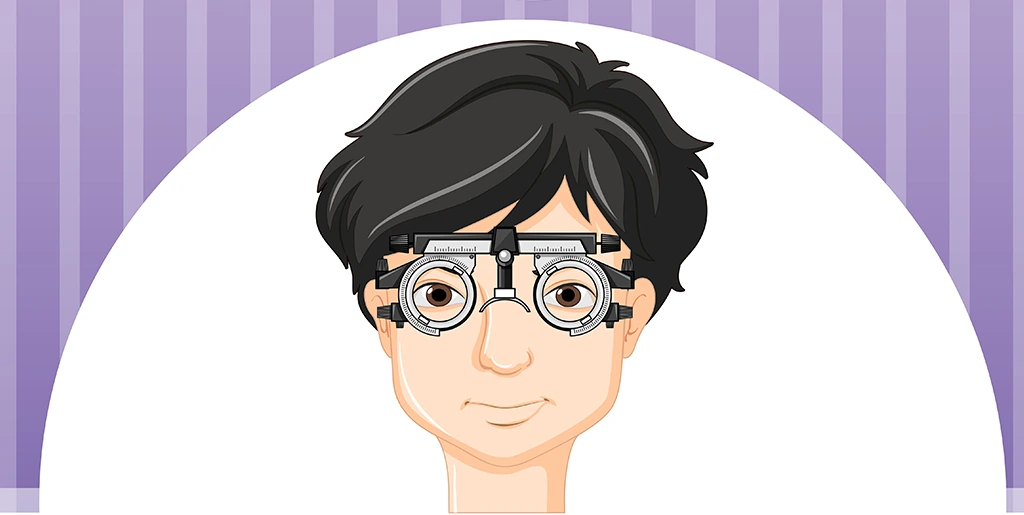
#LIVE2.0 #Review
Having a healthy pair of eyes is surely a blessing in disguise, the importance of which is often undermined. But what do you do when you become afflicted with an eye disease?
It may become rather distressing when the disease in question is one such as Retinitis Pigmentosa ; which is a result of genetic inheritance rather than nutritional deficiency or negligence in health care.
However, the best strategy to cope with this challenge head-on is to be as well informed about it as you can be. As wise people say
Knowledge is power.
As suggested in one of the researches conducted through the platform of Health Promotion International, attaining health literacy and a thorough understanding of your chronic disease is essential for successful self-management.
Having sufficient knowledge about Retinitis Pigmentosa (RP) will equip you with skills to access, comprehend, evaluate and act in accordance for improved health outcomes and personal well-being.
Let’s get started.
Retinitis Pigmentosa (RP) is a chronic disease of the eye, which is characterized by a steady deterioration of vision. This visual problem is basically a hereditary disorder (which means that you inherit it from your parents), and it occurs due to a constant and progressive damage caused to the retinal cells of the eye – known also as the photosensitive cells.
The main function of these photosensitive cells is to collect and convert the visual signals from a person’s surroundings into neural signals that can be intercepted and translated by the brain in the form of coherent images.
The degeneration of rod cells (which are responsible for vision in darkness) and cone cells (which control visual acuity as well as colored vision) ultimately leads to a loss of a person’s night vision and peripheral vision.
Here’s more about Retinitis Pigmentosa.
Before approaching the symptomatic conditions of Retinitis Pigmentosa, it is important to understand the causality of this disease.
Retinitis Pigmentosa is basically a genetic disease, rooted in genes and is passed down in a child whose either one or both parents had the same condition.
There are more than 60 different types of problem genes which can cause this eye condition. These defective genes, if possessed by parents, can subsequently be passed down to their offspring.
Retinitis Pigmentosa can be passed down in various ways. It can often be inherited through an autosomal dominant inheritance pattern.
It means that if either of your parents has a dominant gene for this disorder (a parent has symptoms of Retinitis Pigmentosa) then you have a 1 in 2 chance of contracting it i.e. you have a 50% chance of having the condition as well.
However, if both your parents carry the recessive gene for RP, and do not have any symptoms of the condition themselves, then you have slightly lesser risk of contracting it.
It is known as the autosomal recessive inheritance pattern. In this pattern, there is only a 1 in 4 chance of them passing it down to you i.e. a 25% chance of you being affected by Retinitis pigmentosa.
The onset of symptoms usually begins in childhood and can be identified in a child as young as 10 years of age, but for some people the symptoms may not be manifested until later in adulthood.
The age of onset of symptoms and the progressive speed of the disease, both vary from person to person.
RP begins with deterioration to the rod cells of the retina first, thus causing a loss of night vision for the individual. The person may find it increasingly difficult to see and recognize figures during night hours, or at places with dim lighting.
In the progressive stages of RP, the damage eventually extends toward the cone cells and leads to a loss of visual clarity and vividity, in addition to the inability of differentiating colored objects in the surroundings.
In the later stages, individuals with RP tend to have tunnel vision as their ability of peripheral vision deteriorates.
Typically, as the condition first begins to manifest itself, individuals experience the following symptoms of Retinitis Pigmentosa:
People rarely experience complete blindness due to RP, however, chances do prevail that the extent of vision damage may cause individuals to become legally blind at an older age.
While dealing with such a health condition, it is not unlikely to encounter puzzling questions that may leave you wondering what measures should you take and which ones to stay away from. Here is a helpful list of FAQs you can consult for further concerns.
Support
See and Connect Today!
IrisVision Global, Inc.
5994 W. Las Positas Blvd, Suite 101
Pleasanton, CA 94588
Email: [email protected]
Support: +1 855 207 6665
Support
See and Connect Today!
IrisVision Global, Inc.
5994 W. Las Positas Blvd, Suite 101
Pleasanton, CA 94588
USA Email: [email protected]
Support: +1 855 207 6665
Support
See and Connect Today!
IrisVision Global, Inc.
5994 W. Las Positas Blvd, Suite 101
Pleasanton, CA 94588
Email: [email protected]
Support: +1 855 207 6665